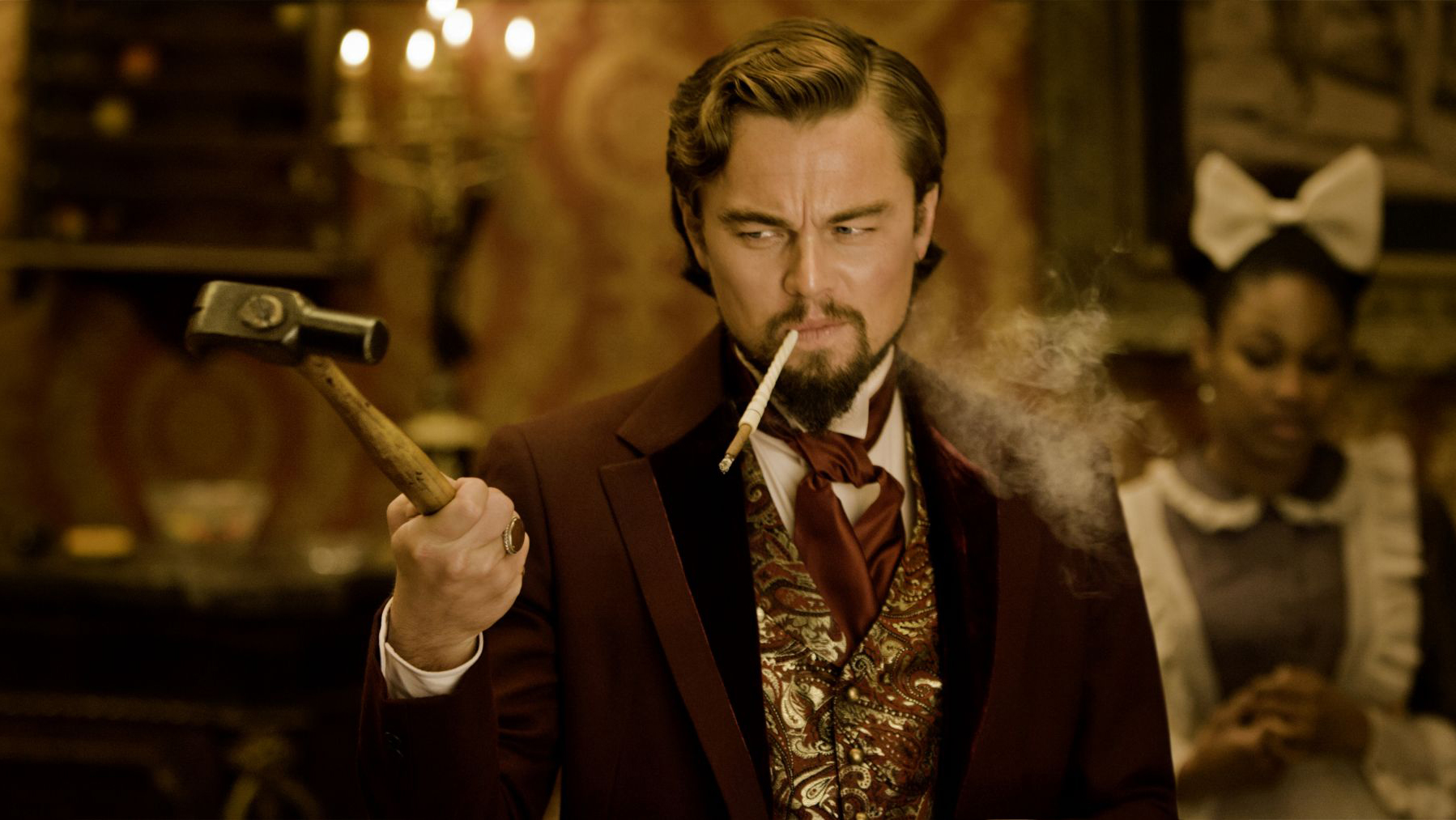Django Unchained Gets Spiky Reception.
Django made its release last week but it seems the real Western is happening outside the cinema between Spike Lee and Quentin Tarantino. True, the two directors have been drawing rhetorical guns since Jackie Brown back in 1997 but Django’s slavery content has hit a bigger nerve.
On the day of its box office opening in the States, Lee blasted the film on Twitter: “American Slavery was not a Sergio Leone Spaghetti western. It was a Holocaust. My ancestors are slaves. Stolen from Africa. I will honor them.”
A few days later Kat Williams added to the duel, threatening to punch Tarantino in the face in an interview with VIBE magazine, “Quentin Tarantino thinks he can say the N-word. But I checked with all of Ni**adom and nobody knows where he got his pass from. I hope he didn’t get it from Samuel L. Jackson and Jamie Foxx cause they aren’t going to help you when I see you.”
To understand what all the fuss is about, let’s start with the plot synopsis: Set two years before the Civil War, Django is a blaxploitation/spaghetti western which tells the story of freed slave (Jamie Foxx) who treks across America with a bounty hunter, played by the golden globe award winning Christopher Waltz, on a mission to rescue his wife (Kerry Washington) from the malevolent but brilliantly captivating plantation owner Calvin Candie (Leonardo DiCaprio).
{{ quote _ Django Unchained_ represents a welcome revival to the slavery debate in popular culture. reopening a dialogue that has made the US public a bit more comfortable talking about slavery.}}
For Lee, Tarantino’s fantasy Western is not worthy of capturing slavery. However, while I agree that slavery was genocide against our African-American ancestors, does he really expect Tarantino to write a tearjerker? I guess Lee wanted Schindler’s list not 3:10 to Yuma, though I don’t understand why the latter should be problem. There has been a tradition in Hollywood to have its films of racial redemption delivered by a sympathetic white protagonist over a musical score written by John Williams but Django provides a wanted break from the PC whitewash.
From the slave-girl getting whipped for breaking some eggs to a Mandingo eaten alive by dogs for trying to escape, Django doesn’t shy away from the ruthlessness and brutishness of slavery. Slavery was not a comfortable experience so why should Django. Slaves greatly outnumbered the plantation owners but the white minority were able to keep them line by instilling fear and terror. Most of the scare tactics used in this film are accurate but as Tarantino and Samuel L Jackson rightly noted, it would have been 10 times worse in reality.
For this reason, I don’t understand how Django is an insult to my ancestors. The film in no way suggests that slavery is funny or that it is acceptable. The plot is ridiculously absurd and down right funny but it gives the gutsiest portrayal of slavery to date. There is however a hilarious scene featuring some KKK members who are finding it difficult to see through their white masks as they try to capture Django and the bounty hunter Dr Schultz.
Kat Williams “beef” is the supposed excessive use of the N word in the film (according to the Independent, the N word is used 110 times) Last time I checked Williams, the N word was a common derogatory term given to African Americans during the 19th century! As popular Hip Hop culture has shown, the N word is used as twisted term of endearment among some members of the black community but it seems like many have completely forgotten where the word came from and what it actually meant. Maybe Django could be that necessary wake up call.
Matters are also not helped for both Lee and Williams given that the former continues to categorize black and whites in his films, with his reductionist racial views that only reinforce racial divides and the latter insults the integrity of the black community through his heinous black stereotypes. But more importantly, that neither of them have actually seen the film in the first place. Do I smell hypocrisy?
Still, it is clear that the controversy runs deeper than the Tarantino/Lee/Williams, hinting to the state of race relations in the US today. (Would the same criticism be made against Django if Tarantino was black?) It seems as if America hasn’t really dealt with its dark racial past. Along with a limited number of films or television films dealing with the subject, some African-Americans claim that slavery is not taught enough in schools.
They are not without reason; in 2010 the Conservative led Texas School Board of Education (SBOE) approved a set of revisions to its history textbooks to place slavery in a more positive light. The following year, a group of Tea Party activists in Tennessee has renewed its push to whitewash school textbooks by seeking to remove references to slavery and mentions of the country’s founders being slave owners.
True, this is a group crazy bible belting Texans who would rather forget that their President is half black, but what is scary is that any changes implemented by the State Board can affect not only the 4.8 million children in Texas but also those in the rest of the nation. The Texas SBOE has significant buying power with the leading American nursery – Y7 textbook publishers which can influence content beyond its state borders.
Given this, Django represents a welcome revival to the slavery debate in popular culture. Whether you enjoy the movie or not, Django has opened a dialogue that has made the US public a bit more comfortable talking about slavery. Who knows, maybe Spike Lee will get his Schindler’s List after all.

Comments